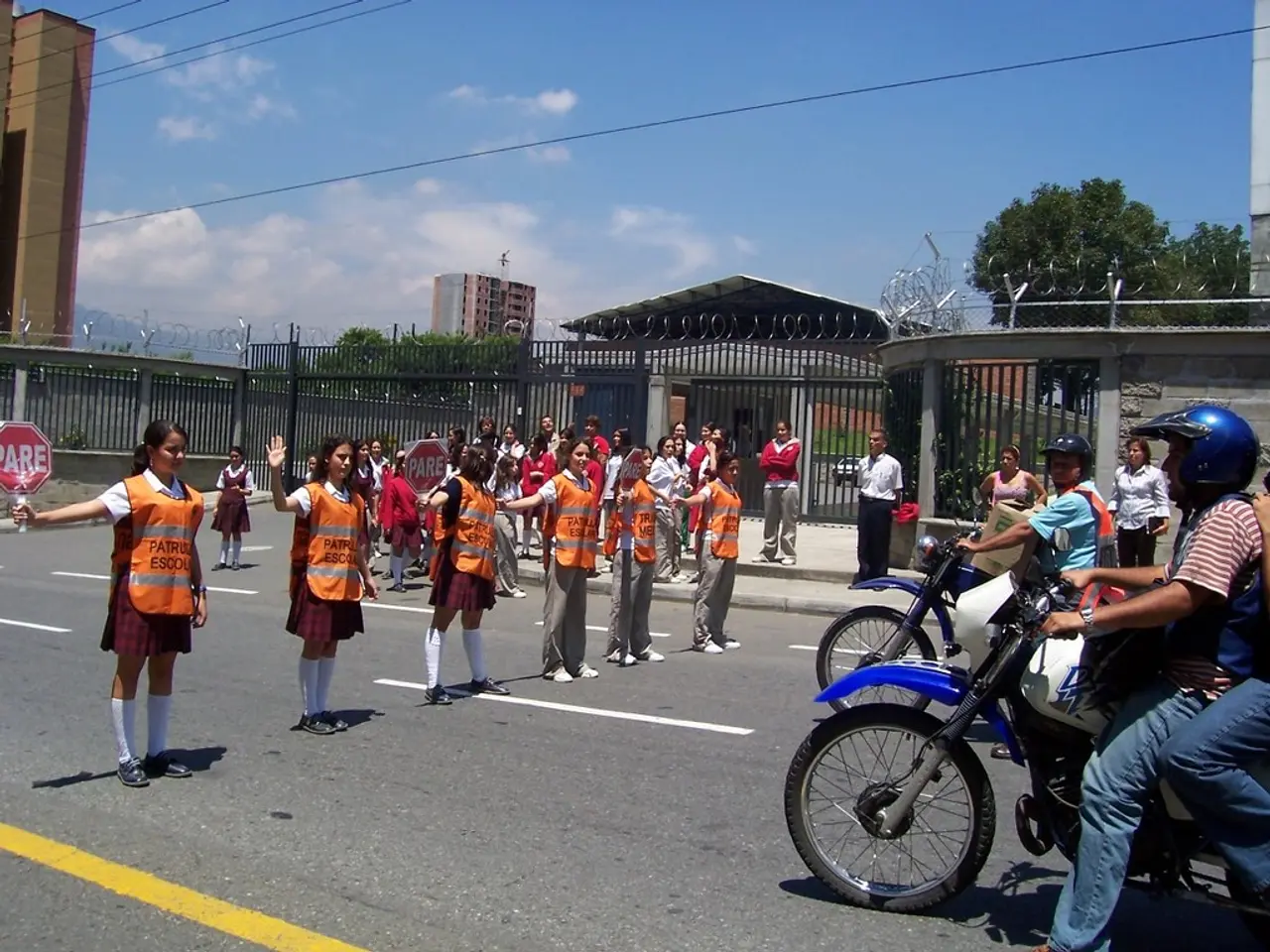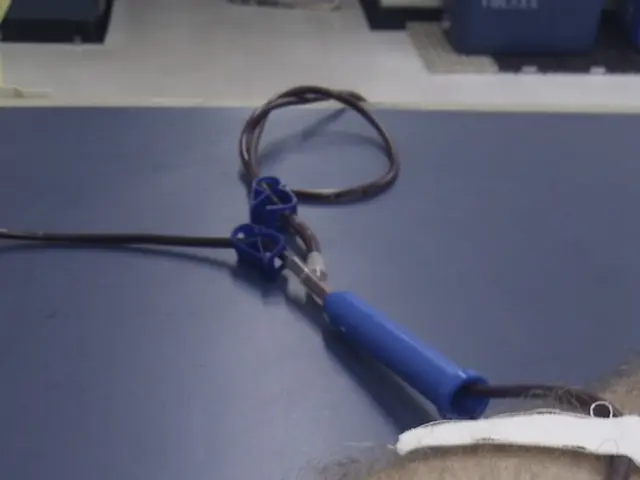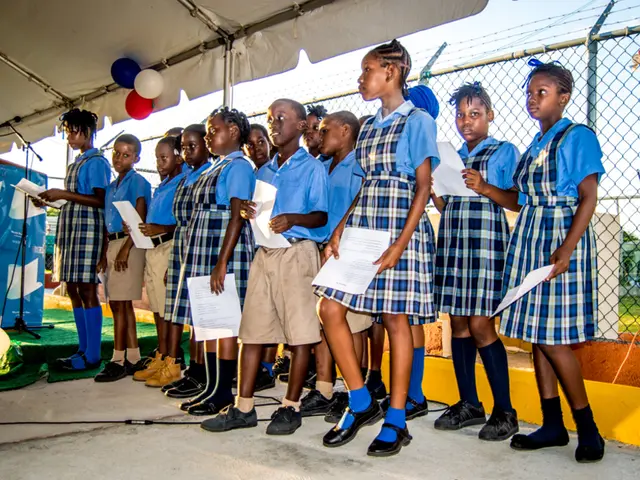Teenagers in Ekaterinburg share advice on defending against radical ideologies
In the city of Yekaterinburg, Russia, extremist recruitment continues to pose a significant threat, albeit one that is increasingly hidden in the digital realm. Despite the country's intense internet censorship and surveillance measures, extremist groups are exploiting social media, messaging apps, and encrypted platforms to spread propaganda, connect with vulnerable youth, and recruit them into destructive movements.
This covert online communication is a growing challenge for authorities, as specific detailed open-source information on recruitment tactics exclusively in Yekaterinaburg is limited due to the restrictive media environment and extensive government control over the internet.
Russia's response to this threat has been multi-faceted. On one hand, the government has intensified monitoring and blocking of web content, shutting down websites, limiting access to foreign social media, and imposing fines for accessing or distributing extremist content. These measures create a heavily controlled digital environment intended to limit extremist online recruitment opportunities.
On the other hand, the government has also adopted a proactive approach, focusing on shaping youth identity and loyalty. This includes the "We Are Together" program, which involves neurologically profiling children and teenagers (aged 12 to 18) to identify those with "positive profiles" for advanced patriotic and career development education. This program uses AI and DeepTech to promote "traditional, spiritual, and moral values" to cultivate loyalty and dissuade youth from extremist influences.
In addition, patriotic seminars and camps are being organized for selected youth, identified through neurological profiling, to build patriotism and counter extremist narratives.
However, these extreme restrictions also risk pushing extremist recruitment underground, making it more difficult for authorities and civil society to track and intervene. The measures reflect a top-down approach combining repression of extremist content online with state-driven initiatives to shape youth identity and loyalty.
Recently, the Center for Military-Sports Training and Patriotic Education of Youth "Warrior" in Yekaterinburg hosted an event aimed at preventing extremism among youth. Ural teenagers were taught self-protection strategies from destructive movements and criminal activity, fostering critical thinking and strengthening civic responsibility. The event was reported by the Anti-Terrorist Commission of the Sverdlovsk Region.
Colonel of Police (retired), Alexander Kashigin, emphasized the need for active engagement with youth to inform them about risks and prevent tragic consequences. He stated that recruitment of Russian citizens by foreign structures is a real threat.
The regional coordinating council has also discussed measures to support youth in the Sverdlovsk Region, as reported by "Regional Newspaper". These efforts underscore a collective commitment to protect the region's youth from the dangers of extremism.
In conclusion, while extremist recruitment in Yekaterinburg is constrained, it persists via covert online communication amid severe internet restrictions. Russia counters this by extensive censorship, penalizing extremist content access, and promoting neurological profiling and patriotic education among youth to prevent radicalization. However, the challenge remains to balance these measures with the need for open dialogue and free expression to ensure a safe and informed society.
[1] Article on extremist recruitment in Yekaterinburg: https://www.example.com/extremist-recruitment-yekaterinburg [2] Article on Russia's internet censorship: https://www.example.com/russia-internet-censorship [3] Article on "We Are Together" program: https://www.example.com/we-are-together-program [4] Article on digital surveillance in Russia: https://www.example.com/digital-surveillance-russia [5] Article on patriotic education in Russia: https://www.example.com/patriotic-education-russia
- In Yekaterinburg, the focus on personal-growth and education-and-self-development programs, such as the "We Are Together" program, aimed at promoting traditional, spiritual, and moral values, is intended to counteract extremist influences on youth and prevent their recruitment into destructive movements.
- Despite the increase in general-news coverage on Russia's strict internet censorship and surveillance measures, the specific details of extremist recruitment tactics in Yekaterinburg remain limited due to the restrictive media environment and extensive government control over the internet, creating a complex and challenging landscape for crime-and-justice authorities.






